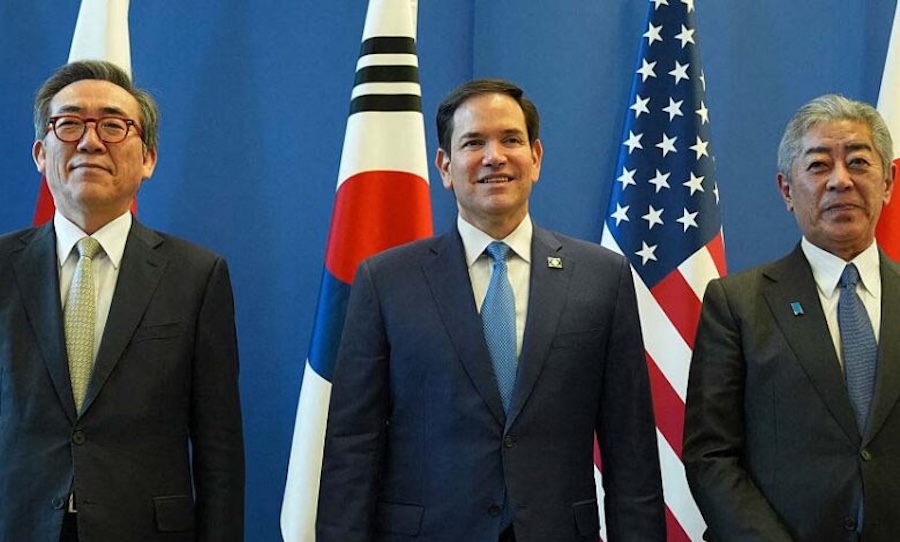The Trilateral Security Cooperation (TSC) between the United States, South Korea, and Japan has become a critical framework for peace and stability in Northeast Asia, addressing threats from North Korea while countering China’s growing military and technological influence. Rooted in decades of collaboration, the TSC was strengthened under Obama, expanded under Biden, and institutionalised through formal agreements and trilateral exercises. Yet its future is clouded by political change: President Trump’s renewed leadership, South Korea’s internal turmoil, and lingering Japan–Korea historical disputes all raise questions about the alliance’s durability. As regional threats intensify and U.S. policy shifts toward “America First” priorities, sustaining the trilateral will require bipartisan support, pragmatic diplomacy, and a shared vision of security. For the Shinzo Abe Initiative at BGF, the endurance of this trilateral partnership is central to realizing Abe’s vision of a Free and Open Indo-Pacific built on trust, rules, and democratic cooperation.
Please see full here: ttps://www.orfonline.org/research/us-south-korea-japan-trilateral-challenges-to-an-enduring-security-cooperation
